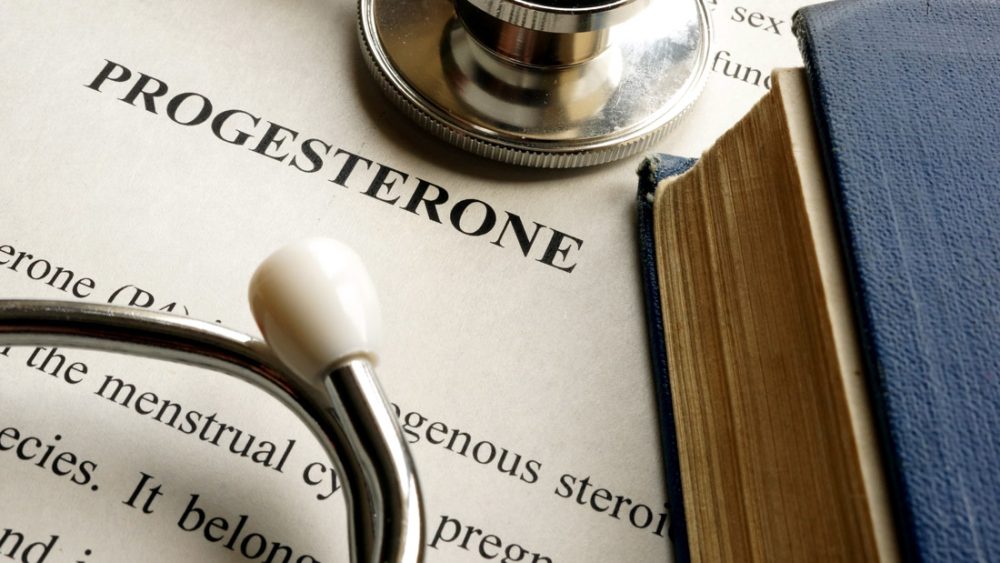Advertisment
Progesterone decreases night sweats & improves sleep in perimenopausal women

New controlled trial research documents that Progesterone (micronized, oral) is effective at decreasing night sweats and improving sleep in perimenopausal women who have menstruated in the last 1-year. Perimenopausal women most want treatment for these two symptoms.
Current guidelines prescribe Menopausal Hormone Therapy (MHT) for disturbing hot flushes/flashes or night sweats (vasomotor symptoms, VMS) in all women younger than 60 years.
“This guideline assumes that hormone levels and symptoms are the same in the early years of menopause and in menstruating perimenopausal women,” according to co-author, Dr. Michelle Fung, endocrinologist at William Osler Health System, Ontario. “Although menopausal women have low hormone levels, perimenopausal women may experience heavy flow, sore breasts, and migraine headaches related to higher estrogen levels” Dr. Fung added.
“No previous study has even attempted to investigate MHT as a perimenopausal VMS treatment,” stated author, Andrea Cameron, research-nurse investigator who coordinated this study. “Current assumption is that hot flushes are caused by low estrogen in both perimenopause and menopause, thus estrogen therapy would be effective.” They just assumed that hot flushes are caused by low estrogen levels, thus estrogen therapy would be effective.”
“Previous studies treating perimenopausal hot flushes have not been successful. These include trials of low-dose birth control pills or estrogen as a skin gel,” co-author Christine L Hitchcock, PhD, research-consultant in Oakville, Ontario asserted. “All studies to date, including ours, studied too few perimenopausal women because perimenopausal VMS are much more variable than menopausal ones. Consequently, despite almost 200 participants, our primary outcome was not statistically different between Progesterone and placebo.”
“The significant results for night sweats and sleep on Progesterone were from a planned secondary outcome asking women at study-end to assess changes they perceived,” stated principal investigator and endocrinology professor at the University of British Columbia, Dr. Jerilynn C. Prior. “Although some reviewers ascribed both night sweat and sleep improvements to Progesterone’s known actions to increase deep sleep, that doesn’t explain the significantly decreased intensity of daytime VMS that women also perceived.”
“Given the evidence, and urgent need for effective treatment of perimenopausal VMS, a physician can reasonably prescribe a trial of 300 mg of oral micronized progesterone for a menstruating woman having night sweats waking her twice a week or more frequently,” according to Dr. Carol Herbert, Professor emerita, former Dean of the Schulich School of Medicine & Dentistry at Western University and former Head of Family Practice at UBC.
Perimenopause has very variable and higher estrogen levels based on previous research by Prior and others at UBC Endocrinology’s Centre for Menstrual Cycle and Ovulation Research (www.cemcor.ubc.ca).
With 189 women who had menstruated within 1-year, this is the first large perimenopause hot flush treatment trial
Results showed that 93% women completed this study; their mean age was 49.9 years old, 87% were White and they were from 7 provinces and 3 territories. All took 3 capsules at bedtime daily (300 mg) for three months with ~90% medication adherence and no serious adverse events.
The initial VMS Score was 12 (number times intensity of day and night VMS), with an average of 5 VMS/24-hour day. At month three the VMS Score was 5.5 on Progesterone and 7.1 on placebo—not statistically different. However, women perceived a significantly greater decrease in night sweats on Progesterone (blue) than on placebo (black) (as shown below).
Sleep quality significantly improved on Progesterone. Depression, decreased on Progesterone but was not different than on placebo. The Perimenopausal Interference Questionnaire showed significantly less daily life interference on Progesterone.
Funded for 3-years by the Canadian Institutes for Health Research (CIHR)
To increase enrolment, a 4th year was funded through donations to UBC from Besins Healthcare International, headquartered in Europe
Oral micronized progesterone (300 mg at bedtime daily) and identical placebo were donated by manufacturer, Besins, to UBC for this trial.
All participants recorded their VMS for one month—eligibility required waking with night sweats 2 times/week and other problematic day/night VMS frequencies and intensities
Excluded participants: those taking MHT, birth control pills and hormonal therapies, or with depression.
Investigators agree that a larger controlled trial of Progesterone for perimenopausal VMS is still needed (ideally randomizing >250 women).





